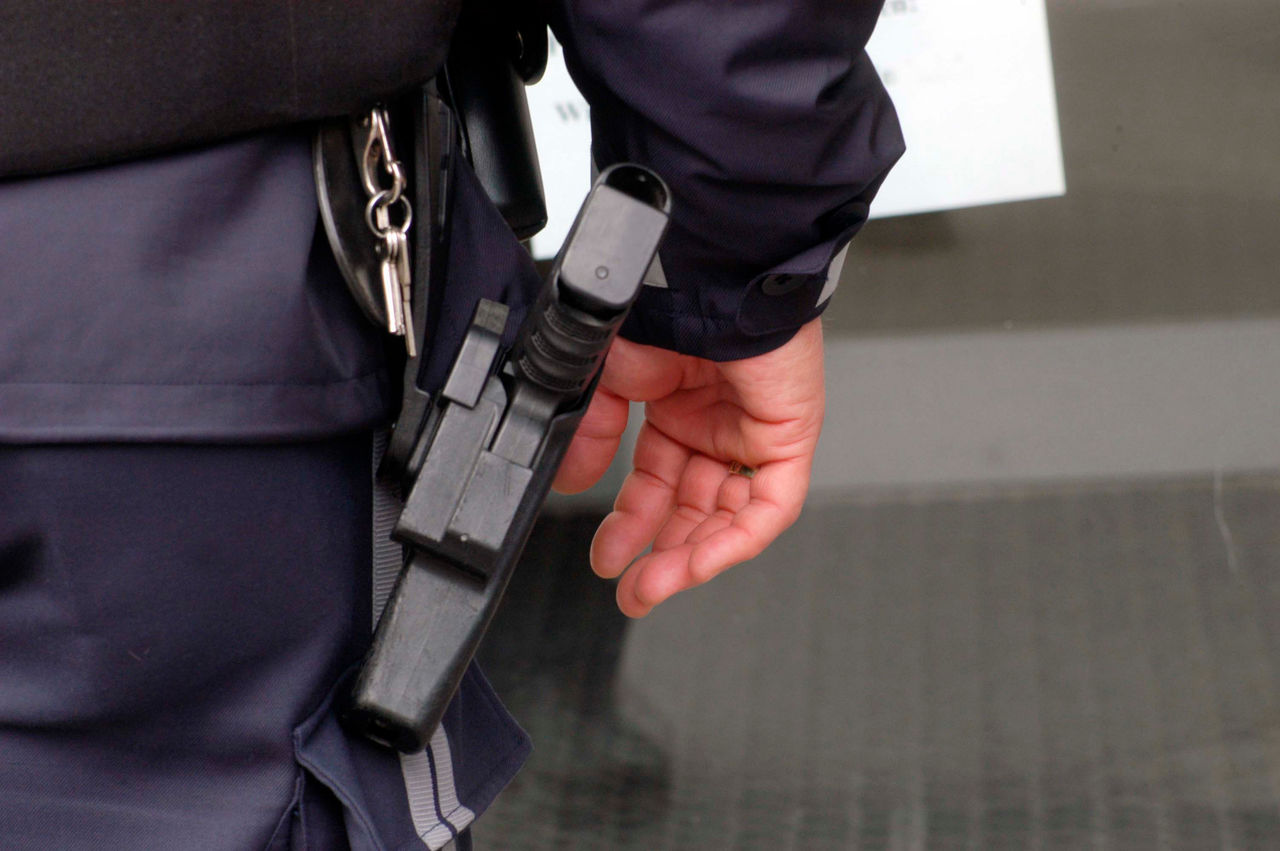Takeaway: Employers can generally set essential requirements for a job. In this case, however, the employee claimed difficulty in holding the mandated firearm due to his physical disability.
The 10th U.S. Circuit Court of Appeals recently concluded that an employer could be required to allow a corrections officer to use his preferred firearm as an accommodation.
The plaintiff was born missing the second and fifth fingers on both hands due to a congenital condition. His hand and wrist structures also lacked the bones, tendons and muscles associated with those fingers. Because of this disability, the plaintiff encountered difficulties grasping, pulling or performing other functions with his hands.
In May 2016, the Utah Department of Corrections (UDC) hired the plaintiff as a corrections officer. The plaintiff had previously worked for the Arizona Department of Corrections. The UDC warden hired the plaintiff with knowledge both of his disability and his possible future need for accommodations.
The plaintiff first worked as a “utility,” a temporary role in which he rotated through different assignments at UDC. While the position is generally unarmed, some of his assignments required him to carry a firearm. He had occasion to carry a weapon almost 80 times while serving in the utility position.
As a condition of eligibility for permanent employment, the UDC requires corrections officers to complete its training academy. Corrections officers must train and qualify on firearms that are approved and issued by the department. The UDC’s firearms policy specifies those rifles, shotguns and handguns that are considered department-approved and which may be issued to authorized officers for use. For handguns, the policy approves only Glock-brand firearms.
During his employment interview, the plaintiff informed the warden that he may need an accommodation for weapons when he went through the academy. The warden explained that the plaintiff had not yet received an offer of employment. He told the plaintiff that when he got to the range part of the academy, he could have a conversation with the firearms training manager and armorer. They would then decide if there was something they could do to help him with qualifications.
The plaintiff successfully completed the firearms training program, qualifying to use all three UDC-issued firearms: the Remington, the Colt and the Glock. The Glock was a handgun, designed to be used with one hand, while the Remington and Colt were rifles, long-barreled guns that are fired from the shoulder.
The plaintiff requalified in July 2017. Although he had passed the firearms training, the plaintiff was still worried about using the department-issued Glock on the job. He wrote to UDC’s human resource specialist to request an accommodation.
The plaintiff said it was difficult for him to get a solid grip on the Glock, and he would have to readjust his grip after two rounds. Given his position and overtime work, he would feel better using something that was more comfortable. The plaintiff proposed that he use a 1911 series handgun manufactured by Springfield Armory (Springfield 1911).
He never received a response to his accommodation request and continued performing his job. He ultimately secured an unarmed permanent position as a Timpanogos Rover in June 2017, but, in certain instances, he would still be required to carry a firearm.
Six days into this assignment, the plaintiff was subject to a UDC administrative review into his handling of a nonlethal gun and his involvement in removing a dead bird from the top of a fence. Based on this review, the warden fired the plaintiff, apparently without knowledge of his accommodation request. A UDC director designated him as not eligible for rehire based on alleged honesty issues and failure to follow security rules and practices.
Legal Action
The plaintiff sued the UDC for violating the Rehabilitation Act by refusing to accommodate his disability, discriminating against him based on that disability, and retaliating against him for his requested accommodation. The district court granted the UDC’s motion for summary judgment on all three claims, and the plaintiff appealed.
On appeal, the 10th Circuit considered the UDC’s argument that allowing the plaintiff to carry a handgun other than a Glock would remove an essential job function. The court found that the relevant essential function of the position was the ability to safely carry and use a firearm, not necessarily a Glock, when required. Therefore, it found that the district court erred in concluding that the plaintiff did not make a reasonable accommodation request when he asked to use a Springfield 1911.
The circuit court thus reversed the lower court’s ruling.
Hampton v. Utah Department of Corrections, 10th Cir., No. 21-4127 (Dec. 4, 2023).
Jeffrey Rhodes is an attorney with McInroy, Rigby & Rhodes LLP in Arlington, Va.
An organization run by AI is not a futuristic concept. Such technology is already a part of many workplaces and will continue to shape the labor market and HR. Here's how employers and employees can successfully manage generative AI and other AI-powered systems.




